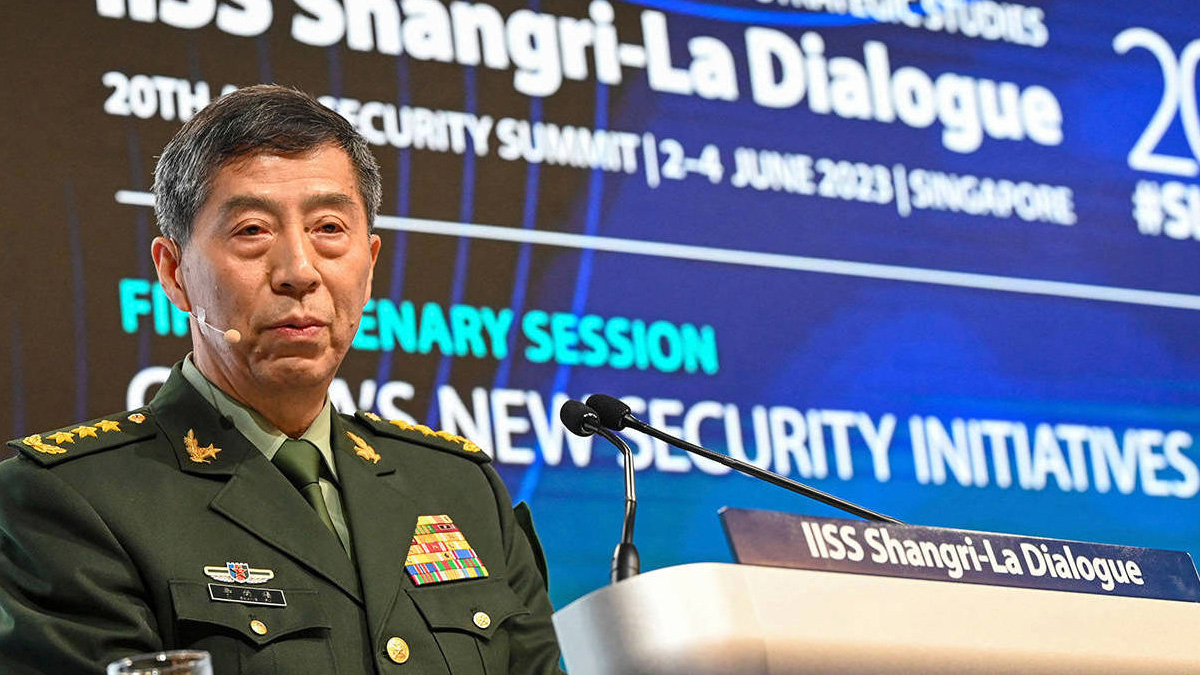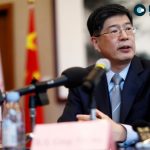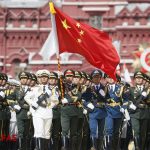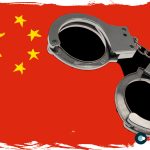
All Talk, No Dialogue on Asian Security

MELBOURNE – The International Institute for Strategic Studies’ Shangri-La Dialogue, Asia’s largest security conference, has wrapped up its 2023 meeting in Singapore. The context for this year’s summit was not propitious: Russia’s bloody invasion of Ukraine grinds on, while Chinese President Xi Jinping continues his uncompromising approach to global affairs.
If one thing was obvious during the two days of defense diplomacy, it is that the Sino-American competition is far from being managed effectively. A robust bilateral dialogue is almost non-existent at the ministerial level, with military-to-military contact even more limited. Efforts by US President Joe Biden’s administration to restart talks fizzled earlier this year after a Chinese spy balloon was shot down in American airspace. Some senior officials are in contact, potentially paving the way for high-level visits. But for now, China is in no hurry to re-engage.
As the United States warns of an alarming increase in ominous intercepts from Chinese military aircraft and vessels amid escalating tensions over Taiwan, America’s partners want China to talk. The focus, they argue, should be on better military-to-military communication to build confidence. In delivering this year’s Shangri-La keynote, Australian Prime Minister Anthony Albanese described more dialogue as the “first and most fundamental” guardrail on US-China relations.
In his speech at the conference, US Secretary of Defense Lloyd Austin also emphasized bilateral dialogue, especially between military leaders. The right time to talk, Austin said, was “anytime and every time.” Dialogue is not a reward, but a necessity, he continued – perhaps with China and US hawks in mind – adding that a “cordial handshake over dinner” is “no substitute for a substantive engagement.”
Despite this appeal, Chinese Defense Minister Li Shangfu rebuffed Austin’s request to meet. That’s not surprising, given that Li has been under US sanctions since 2018 for buying Russian weapons. Nevertheless, China’s adamant opposition to broader defense diplomacy is inexcusable. When asked about the need for guardrails and confidence-building measures, including to manage confrontations at sea or in the air, Li said the answer was not military-to-military dialogue; rather, the West should “mind its own business” and stay out of the waters and airspace near China.
The US and its partners, Li argued, were using freedom of navigation as a pretext for “hegemony.” Making it clear that China has no interest in examining its own conduct in the Indo-Pacific, Li repeated the now-familiar lines that his country would never bully or coerce others and has no hegemonic aspirations. The irony of such remarks was not lost on many of the delegates. The Philippines, for example, challenged Li on the “disconnect” between China’s words and its actions in recent years, not least in the South China Sea.
Li was unperturbed. China’s narrative is aimed at a domestic audience, as well as any regional elites disillusioned with the West and reflexively suspicious of the US. The Chinese delegates, predominantly from the People’s Liberation Army, were quick to encourage Southeast Asian “autonomy” and to portray the Quad and AUKUS security groupings as undermining the centrality of ASEAN and regional stability. Similarly, Li took aim at US “exceptionalism and double standards,” a charge he knew would resonate with some in the audience.
The second takeaway from the conference concerns Russia’s invasion of Ukraine: while the war preoccupies the US and its close partners, Southeast Asia remains indifferent. The argument that Russia’s aggression must be opposed, not least to guard against the possibility of a similar situation in Asia, was repeated ad nauseam at the conference. For the West, this is self-evident.
But in many less-developed parts of Asia, the Russian and Chinese narrative of the war and its causes, including “provocation” by NATO, has gained considerable traction. For example, Indonesian Defense Minister and presidential candidate Prabowo Subianto issued a seemingly impromptu peace proposal, which called for a ceasefire “at present positions,” a demilitarized zone, and United Nations-supervised referenda in “disputed territories.”
The half-baked initiative was dead on arrival. European Union High Representative for Foreign Affairs and Security Policy Josep Borrell, Ukrainian Defense Minister Oleksii Reznikov, and many others quickly condemned the plan, arguing that it would result in an unjust peace. But Chinese delegates welcomed the proposal, and some Southeast Asian attendees, who complained that calls for negotiation were automatically seen as pro-Russian, sympathized with the idea.
Equally striking, the “power of partnerships” – as the Biden administration describes it – was on full display at the conference. Leaders and ministers from the US, Europe, the United Kingdom, Japan, Australia, and Canada sang from the same song sheet on both Russia and China, harmonizing their calls for dialogue and deterrence. Moreover, US-led trilateral meetings were held on the sidelines, a “new Quad” meeting of the US, Japan, Australia, and the Philippines took place, and senior defense officials from the Five Eyes intelligence alliance (the US, the UK, Australia, New Zealand, and Canada) held discussions. India was notably absent, though, with the defense minister skipping the event yet again.
It would be a mistake, however, to equate a strong showing of alignment between the US and its Indo-Pacific and European allies at Shangri-La with the broader mood in Southeast Asia. Concluding the conference, Singaporean Defense Minister Ng Eng Hen once again warned about US-China tensions, a more militarized Indo-Pacific, and the risk of conflict. Some Southeast Asian delegates quietly expressed their ambivalence about US policy toward China, along with worry about the possible return of Donald Trump after next year’s US presidential election, while Indonesia’s concerns about the Quad and AUKUS were subdued but certainly present.
For all its quiet hedging, Southeast Asia continues to worry about the risk of war. But regional leaders are determined to avoid the “invidious choice” between the US and China, no matter how much their rivalry shapes the agenda and dominates discussions.
Richard Maude is a senior fellow at the Asia Society Policy Institute.
Copyright: Project Syndicate, 2023
www.project-syndicate.org















Comments